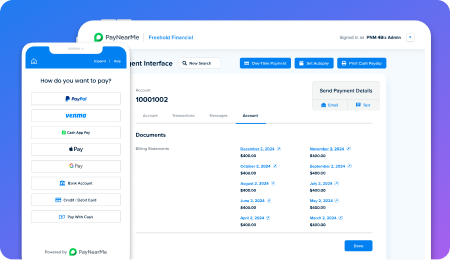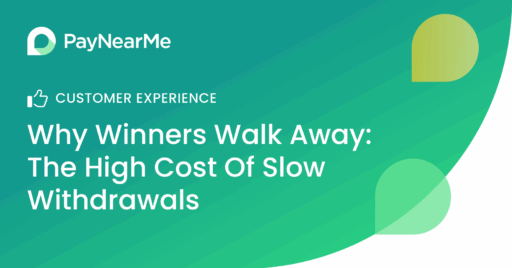What is Fraud Costing Your Business?

Online betting is growing in mainstream popularity—a fact operators are rightfully thrilled about. But with mainstream popularity come mass-market problems such as regulatory issues, scalability pains and, most notably, rising rates of fraud. Even national operators are suffering from fraud headaches, with big names facing fraud such as credential stuffing schemes that result in hundreds of thousands in penalties and losses for operators and their customers.
The gaming industry has a target on its back that fraudsters will continue to take aim at, so it’s important that operators understand the financial impact fraud will have on their business—and how to minimize it.
The problematic approach to fraud
Operators’ risk and fraud teams are the front-line witnesses to the fraud attempts that occur on a daily basis. As the frequency of fraud increases, operators often address the problem by adding more employees to those teams with the hopes that throwing more resources at the issue will ultimately resolve it.
This may help in the short term but creates a huge long-term problem of its own, as explained by Mark McLaughlin, Player Sustainability Operations Manager at Unibet, who manages the payment and fraud analysis team. In an interview with OneSpan, he noted that as Unibet’s customer base grew, he needed to hire more and more analysts to handle the rise in fraud attempts. After hiring his 14th team member, he realized that model wasn’t scalable.
“Something that was just so clear to me was that this isn’t sustainable,” said McLaughlin. With more states open to sports betting, the manual process could not be scaled. The only solution at hand was to ‘throw more bodies at the problem’, but even additional personnel was a temporary solution. Projections based on growing volume and average completed case rate for analysts calculated that in three years’ time, the team would need to grow to 36 members.”
Other operators take a slightly different approach and choose to outsource the problem. They might recruit a third-party payments provider who solely processes payments, without added security to prevent fraud and chargebacks. The failure of this approach is that the operators’ overall cost of payment processing explodes after chargebacks and fees start compounding the base cost of processing.
iGaming and online sports betting operators are already considered high-risk by credit card companies and are therefore subject to higher processing fees to begin with. Add in the cost of chargebacks and penalties, and the result is a major hit to an operator’s bottom line.
Even worse, when a credit card company sees an increase in chargebacks, they may blacklist an operator from their network altogether, leading to a drop in player activity when their preferred payment method is no longer available.
What kind of financial impact are operators facing?
Payment processing costs money. Chargebacks cost money. But what kind of total cost are operators looking at? According to estimates by Chargeback Gurus, once you add up processing costs, business operational costs, the chargeback penalty fee and the refunded transaction itself, a $100 chargeback can end up costing an operator $207.
If that doesn’t sound bad, try scaling that number. If a big operator suffers $1 million in chargebacks and we multiply that by the 2.07 in estimated costs, that operator just took a $2.07 million financial hit. Going further, the FTC estimates that fraud in the gaming industry is growing 30% year over year. If that same big operator doesn’t fix their fraud problems, the cost of fraud jumps to $2.7 million the next year, and $3.5 million the year after that.
Operators need to start asking themselves some difficult questions. For example: What would a 2x increase in fraud costs do to their operating model? Would it be feasible for them to continue operating at growth if they saw a 30% increase in fraud this year? And lastly, what is their current payment processor doing to contain their fraud costs?
Luckily, there’s a better way to address fraud.
By choosing the right payments partner, operators can mitigate fraud through a variety of features. The MoneyLine platform by PayNearMe supercharges payment processing with an integrated suite of risk and fraud tools. Operators can leverage these tools to maximize revenue, safeguard players, improve the player experience, and gain oversight and control.
- Block fraudulent actors: Reduce fraud and drive responsible and secure betting by leveraging risk rules and set player limits.
- Mitigate risk: Improve chargeback win rates by collecting evidence and dispute chargebacks directly in the MoneyLine platform.
- Take proactive measures: Get ahead of fraud by identifying early signs of fraudulent activity and exploring top reasons for disputes with a robust set of dashboards.
- Protect your consumer data: Gain control of your security posture by including multiple security checkpoints such as admin approval, user permissions, and customer phone number verification to reduce fraud.
MoneyLine puts valuable data right at operators’ fingertips, allowing visibility into player payment trends as well as potentially risky player behaviors. With a comprehensive Insights dashboard, operators can dedicate crucial funds to acquiring market share rather than hiring additional analysts.
Trust the MoneyLine platform for iGaming payments
PayNearMe’s MoneyLine platform gives operators a complete deposit and withdrawal solution that maximizes your revenue by boosting player satisfaction, lowering conversion costs, improving reliability and future-proofing your business. With built-in risk and fraud tools, MoneyLine goes beyond simple payment processing to lower the cost of business operations while safeguarding players.
To learn more, contact our team or view an on-demand demo of the platform.



